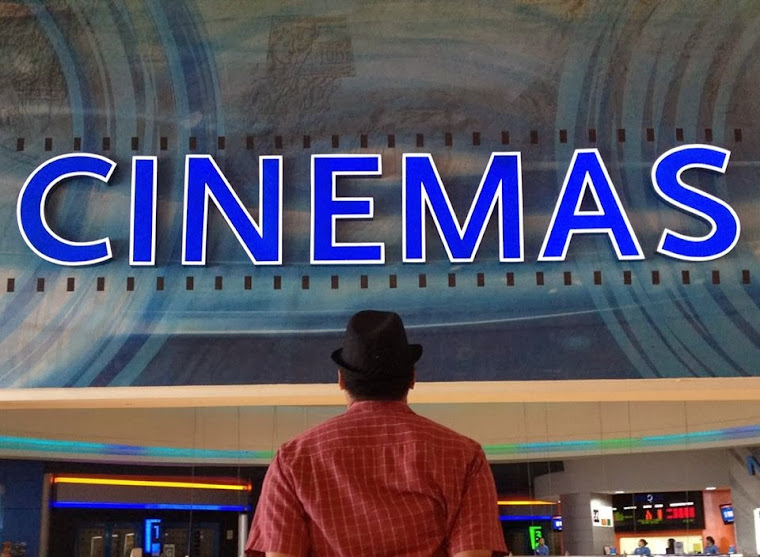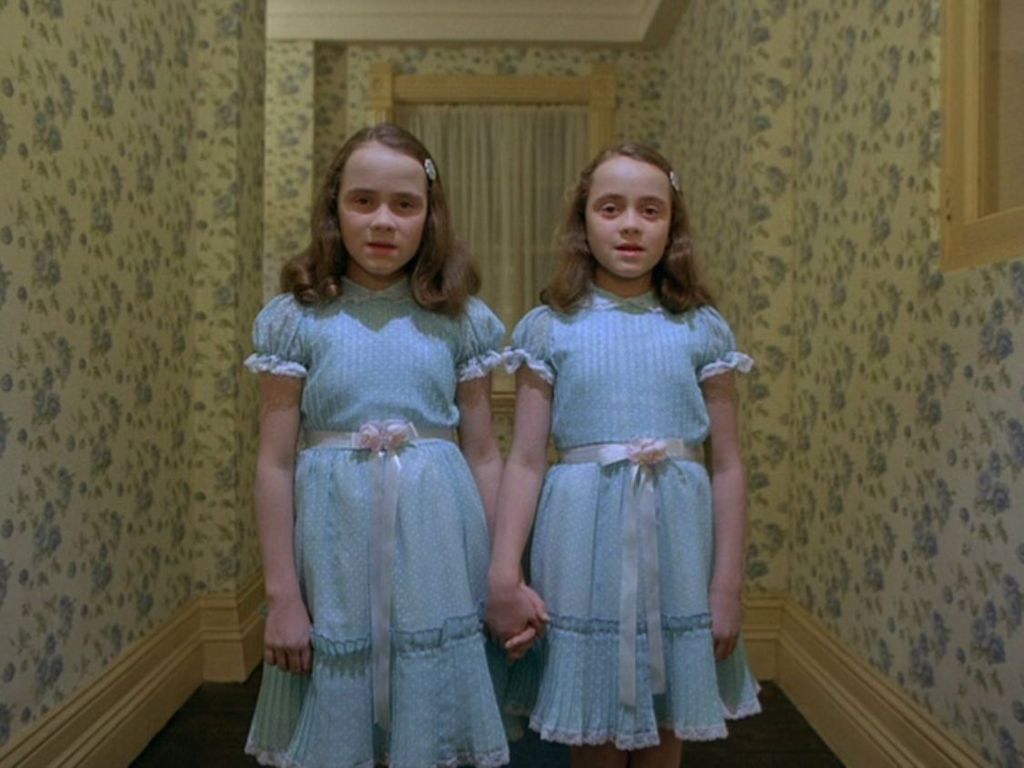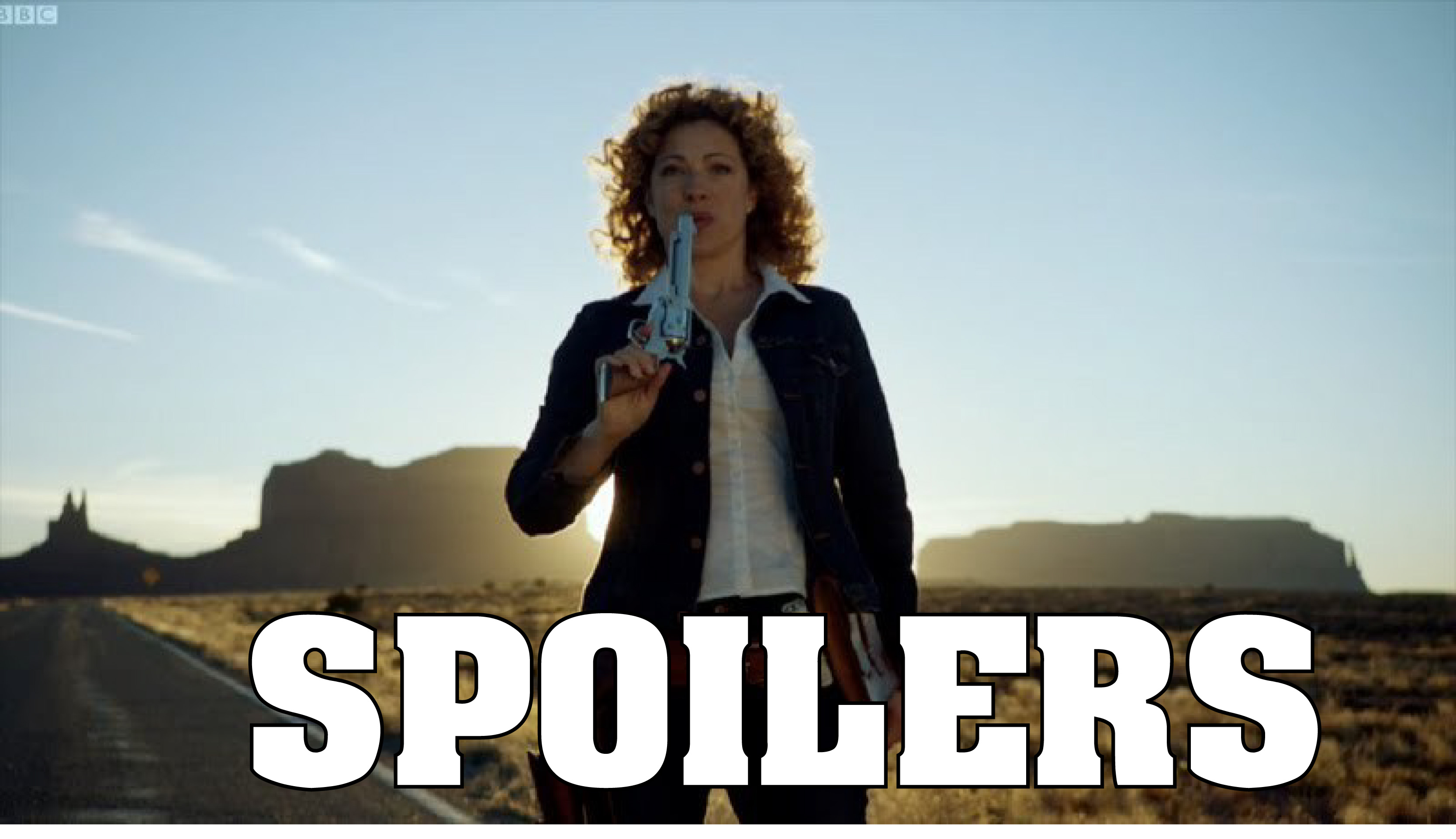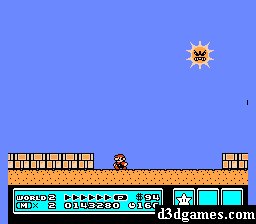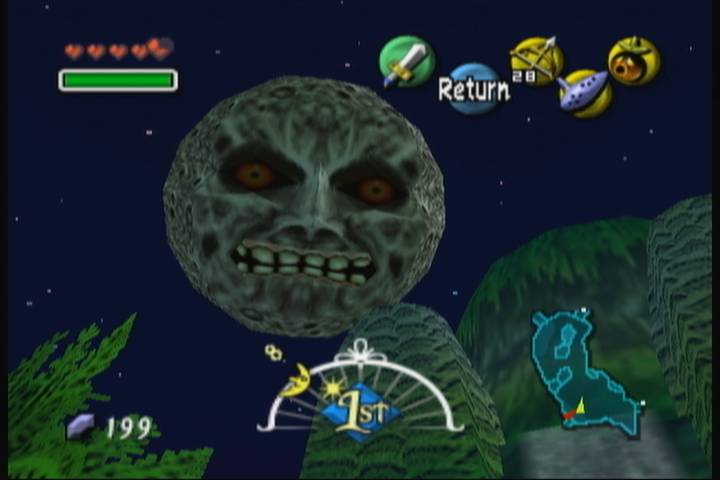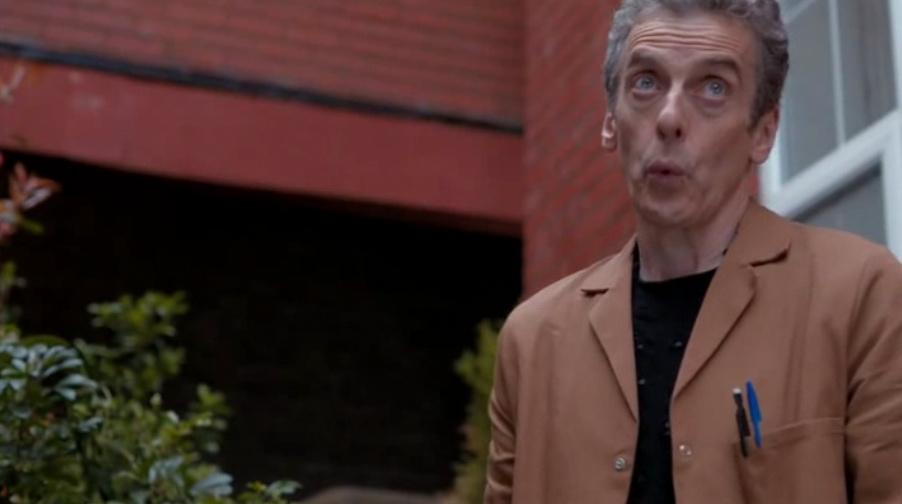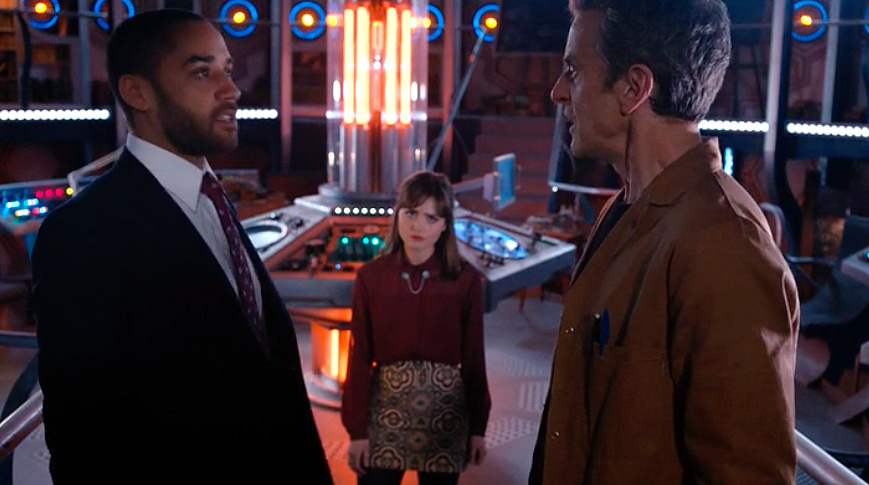Summary:
There is a hotel, the Overlook Hotel, amidst the mountains of Colorado. Built over a Native American burial ground, it is a huge hotel indeed, housing many rooms with almost endless amounts of sustenance, and a gigantic hedge maze in its grounds. It is a popular tourist destination, but its isolation makes it prone to blizzards and is closed from November to May. A winter caretaker is needed to look after the place, and writer/former alcoholic Jack Torrance (Jack Nicholson) applies for the job, bringing with him his wife Wendy (Shelly Duvall) and young son Danny...
------------------
Happy Halloween everybody! Tis a night of spooks, candy, parties, things that go bump in the night, and many other frights. Some accompany their kids to go trick-or-treating, others decorate their houses for the season, children and even some teens and adults dress up in costumes of all kinds, other cultures focus more on the religious aspect of the day. And then there are those that watch horror movies. In the history of cinema we can't even begin to count how many horror movies there are. A lot of pop culture horror is derived from these movies, which are in fact derived from many sources like legends, novels, etc.
And its a genre that I'm not particularly fond of myself. Don't get me wrong, I can certain understand its appeal. I can see why people would like watching horror movies, like if they want a good scare and whatnot. I'm just not really into them like I am for Science Fiction, Fantasy, animated, and Superhero movies. I'm at the very least aware of the history of horror movies, from the iconic classic monsters like Dracula and Frankenstein's monster, to the bloody glory slashers like Jason Vorhees and Freddy Kruger. In my life I can count the amount of horror movies I've ever seen on one hand.
Why don't I like horror? Eh, I'm not really sure. Apart from them just not appealing to me, I'm not really into seeing stuff like people being cut up by a serial killer, jump scares, etc. Heck one of my least favorite film franchises ever is the Saw movies because of its overglorification of torture horror. It's just so squirming to me, seeing stuff like that in film, when we already have enough horrors and psychopathic serial killers along with horrors like terrorism in real life. I'm not above watching classical black and white horror films, or movies that feature horror monsters. But for me it seems that as the cinematic history progresses, horror movies just get worse for me.
But as I said, there are some horror movies that transcend their genre; they go beyond what is to be expected and, while it does have the trappings of horror, it is almost something entirely different. This is one such film: The 1980 classic The Shining, directed by Stanley Kubrick and based off the novel of the same name by Stephen King.
First a little background on the two key players who made this film possible. Stanley Kubrick is regarded as one of the greatest and influential directors of all time. His unique cinematography, realistic details, and adaptations of novels that do the written works justice define him. Highly memorable films such as 2001: A Space Odyssey, A Clockwork Orange, Dr. Strangelove, and Full Metal Jacket are all attributed to Kubrick's masterful filmmaking. The Shining is of course among them, but who wrote this particular novel?
Enter Stephen King. He has written more books than we can possibly count, and has tackled many a genre from horror to fantasy, to science fiction and suspense. To say that he loves his work is un understatement. To paraphrase Epic Rap Battles of History, he's a workaholic with a fiction addiction.
He is mostly known for his horror stories however, and is also known for having his books being adapted into various miniseries and movies. Such of these adapted movies/miniseries include of course The Shining, as well as Carrie, It, Misery, and The Tommyknockers. The 1994 masterpiece "The Shawshank Redemption" is also adapted from a story written by Stephen King.
When released, the adaptation of The Shining was met with mixed reception. But like many things, it was reexamined as time passed. eventually became regarded as one of the greatest horror movies of all time, but also one of the greatest movies period. I personally can't agree with the latter, but at least among the horror movies I've seen, I can agree with that. As one who has only seen the slasher, gory films of the 90's and 2000's, seeing something different like The Shining was really a treat. The film has been discussed to death already by so many people, students, film critics and writers, so for this review I'll just give my own thoughts and my likes and dislikes of the film as well as other aspects.
----------------------------------
The only other Kubrick film I've seen by this point is 2001: A Space Odyssey, so I'm not all that familiar with Kubrick's style yet. But right from the get-go the film starts off foreboding. Beautiful, scenic shots of Colorado, combined with some slow, haunting unsettling music and REALLY generic title cards set the mood; the kind of mood that makes you really feel uncomfortable. Already I can see a big difference from The Shining and other horror movies made today; a lot of horror movies are made with being the intention of being scared out of your pants and laughing from the experience. But The Shining can really make you feel unsettled.
We meet our three main characters straight away: writer Jack Torrance played by Jack Nicholson, and wife Wendy played by Shelly Duvall and their son Danny. Jack Nicholson is known for playing a lot of grumpy, angry roles, and this one is no exception. Jack sounds pleasant enough; he's an aspiring writer, but he did have an alcoholic problem in the past and seems like a guy that can be angered easily. Wendy is a caring mother but is pretty meek and seemingly a little weak-willed. Danny has...something to say the least. To further drive home the unsettled-ness of the film, Danny has an imaginary friend. Innocent enough right? Wait till you get to the point where he says, perfectly calmly, that his friend lives in his mouth. And twitches his finger while he's talking to it. And changes his voice to a raspy tone.
As the beginning of the film progresses we learn that Jack was hired by the Overlook Hotel to be the winter caretaker while it's closed during the snow season. Jack is OK with the job as the solitude allows him to focus on his writing, despite warnings and stories about a gruesome murder of a previous caretaker's family by the caretaker himself. It's not all that surprising as this hotel was built over a Native American burial ground. Because THAT'S how it always is isn't it? Horror must always come from a stupid person's decision to build something over a haunted and supernatural place. Wendy and Danny follow later, and we spend a good deal on how the hotel itself works, from the hedge maze, to the kitchen, to specific rooms, to an explanation to just why this movie is called The Shining.
This part of the movie may be regarded as boring by some, but it is supported by, again the unsettling atmosphere of the whole thing. This part of the movie, and other parts, are punctuated by title cards like "One Month Later" and "Tuesday". But they are all in silence, and placed in a way that almost make them seem scary in their own right. While there is a story going on, a lot of the movie is mostly a selection of moments that all serve to pay off by the end. And throughout these moments there are many things that happen, to just the characters interacting inside the large hotel, to some legitimately disturbing imagery, scenes and other moments that almost make you wonder if what you're watching is almost making you as mad and nuts as the characters are getting.
Cabin Fever is pretty much the term here, but we honestly don't know if it's even the type of Cabin Fever we are familiar with. Cabin Fever refers to an extended period of time when a person or two more are locked up in a secluded area. Eventually the situation leads to the character becoming insane because of the situation. In The Shining this changes things differently because we are in a large hotel, and cut off from the rest of the world by a blizzard. And on top of that we don't know if the characters of Jack and Danny are being driven nuts and acting strangely because of their own character issues or if it's the paranormal nature of the hotel itself and its horror stories. It's a fascinating setup that really pays off by the end when things really go down.
Jack Nicholson really, ahem, shines in his role here. The man seems to have made playing psychotic characters an art, and it's his role in the The Shining and the first Tim Burton Batman movie as the Joker where that's apparent. A lot of the greatness of the movie, at least the greatness that we can see with our eyes instead of the spooky weird stuff that is happening up to our imagination revolves around him. Jack Torrance seems like a nice guy but clearly has repressed issues, and the isolation and solitude stuck in the hotel might have made it worse, and again we don't know if it's his inner demons resurfacing or the supernatural energies of the hotel just messing with him. It's an endless cycle of wonderment and thought-provoking that makes The Shining so unique from its other horror movie brethren. It's par the course for Stanely Kubrick naturally, but combine that with Stephen King's work and you're in for a wild ride, to say the least.
By the end of the movie when we reach the climax, all the build up to everything up to that point comes crashing down as the movie, and Jack, descends into madness. It's here where the famous "HEEEEEEEERE'S JOHNNY!!!!" comes from.
And from there...I can even describe what happens. It's not indescribable because it's so freaking weird or the like, it's just that I don't even know how to describe it without doing it justice. This movie needs to be seen to be believed.
--------------------------------
Final Thoughts:
While I can say that The Shining is a wonderful, it really is a film that really has a stingy requirement to like it. You really need to be invested into the movie, you need to watch it in the right atmosphere, you need to buy into a lot of the things that are going on, etc. The movie really relies on a lot of elements to work like Jack Nicholson, the cinematography, the music, and the acting of everyone else. If even one of these elements was not there I think the movie would've really fallen hard. But the right combination makes it work, and if you can check off all those list of requirements, you're certainly in for a wild ride.
Anyway, this review has been going on for too long. I think by this point it's almost an essay. Go and enjoy your Halloween night!
My score: 4.5/5
